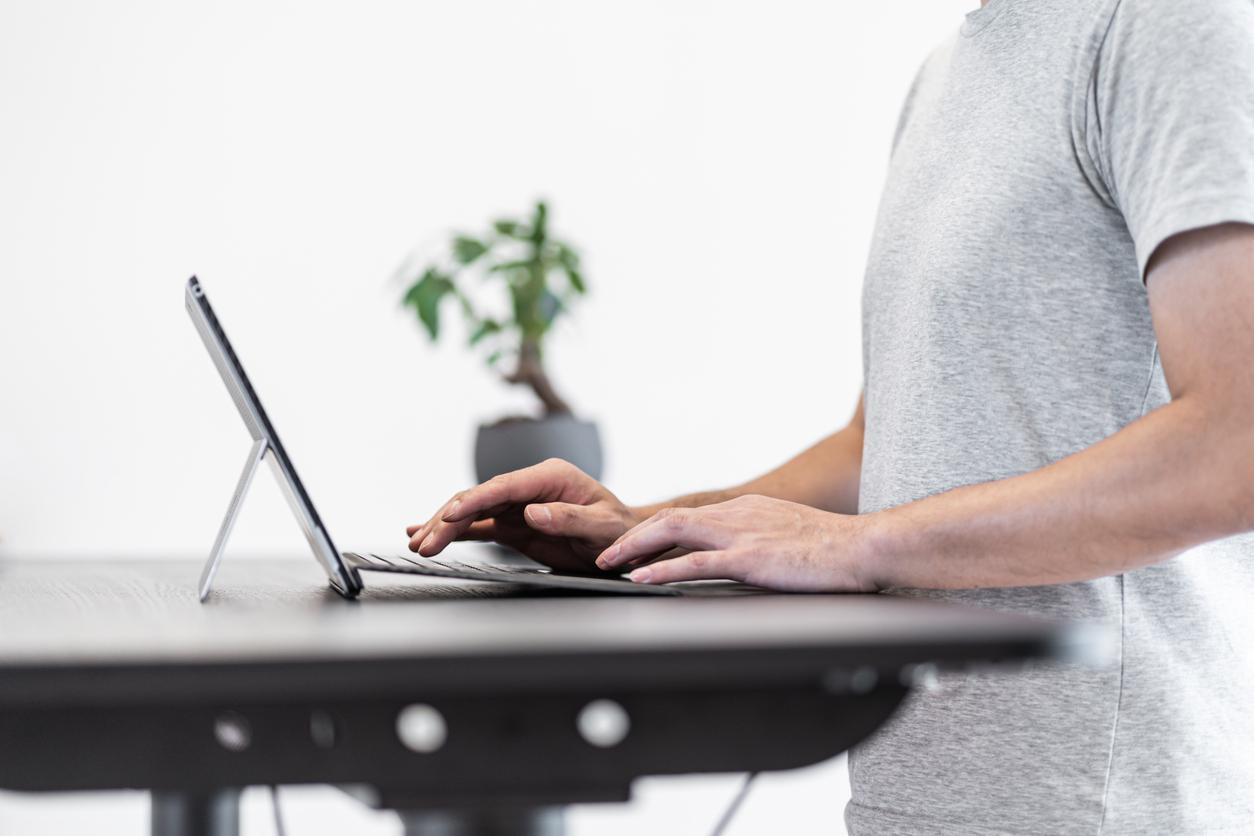Isolation, loneliness, loss of self-confidence… The Covid-19 causes an upheaval in our relationship to the world – and to work – with an increase in psychosocial risks, according to various studies, including an Ifop survey for Malakoff Humanis produced from June 19 to July 15. 12% of those questioned believe that their state of health has deteriorated, and 28% make the same observation regarding the quality of life at work. Another figure revealing this particular context: 40% of respondents believe that their pace of work has accelerated. “Many people have changed their lifestyle, going to bed later to work, skipping meals, smoking or drinking more alcohol“, notes Emmanuelle Grall, psychologist in Chatou.
However, after the summer, one could expect the batteries to be recharged. But the second wave of coronavirus, an unavoidable subject – in the media, with loved ones – and mentioned well before the summer, is there, and with it the return of anxiety. © been linked to this unprecedented pandemic. “People are worse off than during confinement”, summarizes the psychologist. The new restrictive measures, announced each week, prevent them from practicing their sporting or cultural activities, or from planning, for example by organizing future holidays. Other sources of worry, which everyone experiences to varying degrees: the fear of being sick, of infecting loved ones, and the fear of dying for some.
100% teleworking singled out
Psychologist in Paris, Anouck Boulet de Bohan does not notice an increase in the number of consultations but always “an undeniable impact on the daily lives of patients. If some have experienced it in a positive way, refocusing on essential things, others have become aware of the importance of their work, others discover themselves in psychological suffering because of the abstinence from spontaneous exchanges and the relational impoverishment induced by telework“. Set up for some since March, this one is singled out.
The advantages are undeniable, such as the reduction in transport time and therefore the fatigue supposed to result from it, but it accentuates the collusion between personal life and professional life, and makes borders less difficult. tench. The months of confinement, confinement in small spaces, especially in large cities, the presence of children and spouse… so many sudden factors that have activated or reactivated decompensation phenomenathat is to say these passages from a stable state to a rupture of the equilibrium.
Find an interlocutor and a neutral place
How to react? The first reflex should be to talk about it: preferably to an outside and neutral person, in an equally neutral place if possible. Psychologists are the first contacts that come to mind. “The office is a place of security and support allowing you to take time for yourself and talk about your difficulties.“, sums up Emmanuelle Grall. But it’s not always easy.
“You have to be ready to work on yourself, and you also need a certain confidence to dare”, adds Solène Brost, neuropsychologist. To facilitate the search for a therapist, she created a year ago SharZen, a platform for direct contact between 200 liberal psychologists throughout France and company employees. It offers a psychological support service for employees who can choose their own psychologist. SharZen thus allows the patient to choose the form, face-to-face or remotely, that suits him, the sessions being the responsibility of the employer. Among the other interlocutors to be privileged, the general practitioner, by taking advantage for example of the teleconsultation, and of course the occupational medicine.
Schedule, punctuate your days on a daily basis
According to many health professionals, the first tips are simple to apply: return to a healthy lifestyle, eat meals at a fixed time, do not neglect your sleep. For Solène Brost, “you have to keep a rhythm“: compel yourself to do certain activities, such as reading, writing, watching a film or a series, and schedule them in your schedule.”I suggest to my patient to make the most of the present moment since this period of uncertainty no longer allows us to project ourselves“, adds Emmanuelle Grall.
Another track, to be applied on a daily basis. “People in telework can position an object, such as a chair, or set up rituals or prohibitions, to mark their anchoring in work or in personal life“, advises Anouck Boulet de Bohan. Stretching, break time to “enter” and “exit” moments of work, breathing exercises… there too, it is a question of punctuating your daily life.
Initiatives to be taken by employers
At a more collective level, the company obviously has a role to play, by establishing a partial return to the office for volunteers, but also by implementing a real policy of disconnection to avoid exhaustion and the risk of burnout. It is also up to the employer to encourage friendly and ritualized actions to maintain team spirit, set up a “suggestions box” to collect positive thoughts, display them , in order to “restore heat in places sanitized by sanitary rules and the wearing of masks“, adds Anouck Boulet de Bohan.
And why not take advantage of his doubts and questions to take stock of himself, trying to define the place that work should take in our lives? Should it be essential, secondary? Do we like the work itself or what is attached to it, such as a place or people? Here again, therapists can help to put words to our questions.
Read also:
- Telecommuting: how to choose your office chair?
- The new corporate health protocol
- In telework, gestures to avoid to preserve mental and physical health
- Why working with a swiss ball is good for your back
- Why walking is (really) good for your health















